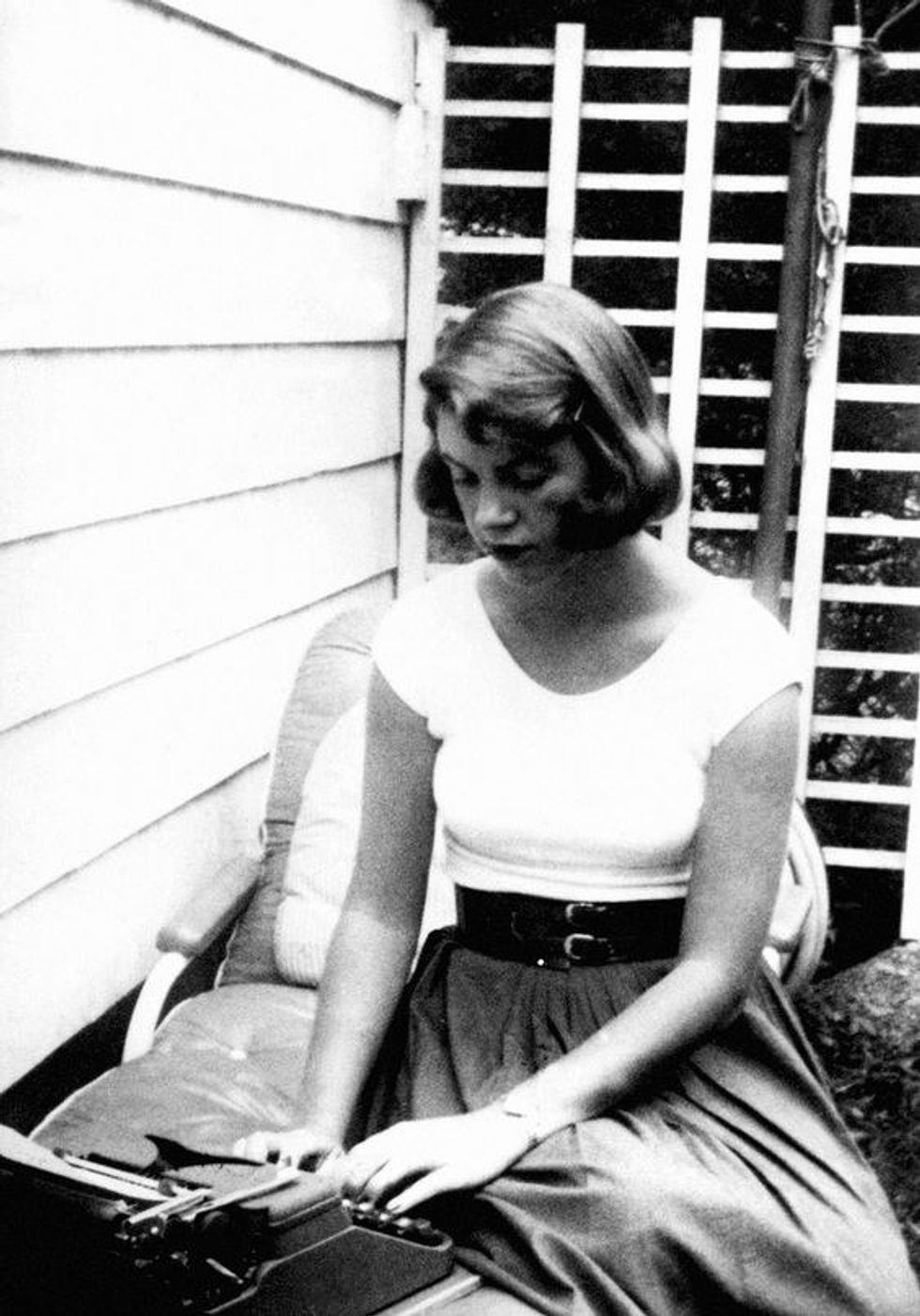"I took a deep breath and listened to the old brag of my heart, 'I am, I am, I am.'"
Sylvia Plath is one of those writers that grows with you as your perception about writing changes. At least, she did for me. I have always loved her writing. However, when I was a teenager I fell into that age old trap of being enamored by her tragic backstory, and read her poetry with a macabre sense of curiosity. As I grew older however, I read more of her work; including her prose and journals, and was filled more with a sense of pure wonder. Her writing is fantastic. Her writing is beautiful. Sometimes people tend to focus on a certain aspect of a writer's life and only come to know that writer by that one aspect only. This happens often with writers (or artists or celebrities) that meet untimely ends. I've noticed this many times with two of my favorite authors; Virginia Woolf and Ernest Hemingway. So many critics and readers become obsessed with their suicides, their mental illnesses, and their deaths that they forget to remember the important things that they with their lives. And more importantly, when you ignore their accomplishments in that way, you miss one very crucial detail. Writers are people too. Flawed, complex, intricate people made up of hundreds of bits and pieces which come together to form who they were. So when you concentrate on one aspect of Sylvia Plath's life (her suicide for example), you miss out on so very very much.
"Girls are not machines that you put kindness coins into until sex falls out."
Reading Plath's journals led me to a greater understanding of her unique personality. She felt herself very keenly as an independent person. She worried about finding her place in the world, of all the countless paths she could potentially take. She pondered constantly about leaving her mark. She was someone that I find now, at the age I am, easy to sympathize with. She was young and enthusiastic and extremely prolific. She wrote and wrote and wrote. And not just poems. A novel, short stories, multitudes of journals. Words just poured out of her. She attended Smith College, Newnham College, and the University of Cambridge. She won a posthumous Pulitzer Prize for her poetry. Yes, she suffered from depression throughout much of her life but that didn't diminish the shine of her spirit. To define Plath solely in terms of her mental illness is to do her a grave injustice.
So many of her poems are filled with vivid imagery and sensory stimulations. Take for example, her poem called Fiesta Melons;
"In Benidorm there are melons,
Whole donkey-carts full
Of innumerable melons,
Ovals and balls,
Bright green and thumpable
Laced over with stripes
Of turtle-dark green.
Choose an egg-shape, a world-shape,
Bowl one homeward to taste
In the whitehot noon :
Cream-smooth honeydews,
Pink-pulped whoppers,
Bump-rinded cantaloupes
With orange cores.
Each wedge wears a studding
Of blanched seeds or black seeds
To strew like confetti
Under the feet of
This market of melon-eating
Fiesta-goers."
This past month marked the 54th anniversary of Sylvia Plath's death. It's important to remember that as much as we may adore her writing, she was more than just a writer. She was a scholar, a thinker, a dreamer, a wife, a mother, and most importantly, she was a woman. A woman who laughed and cried, loved and suffered, a woman who was, for better and worse, human.
"Can you understand? Someone, somewhere, can you understand me a little? For all my despair, for all my ideals, for all that-I love life. But it is hard, and I have so much-so very much to learn."




















